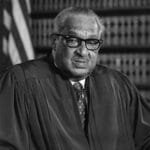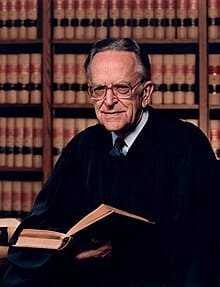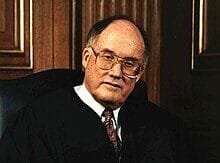 Chief Justice Warren E. Burger, appointed by President Richard Nixon in 1969, led the Court until 1986. Though Nixon hoped Burger would steer the Court in a more conservative direction, the Burger Court became known for advancing significant liberal decisions, particularly on social issues. Despite his administrative strengths, Burger’s jurisprudence was often criticized for lacking coherence and clarity.
Chief Justice Warren E. Burger, appointed by President Richard Nixon in 1969, led the Court until 1986. Though Nixon hoped Burger would steer the Court in a more conservative direction, the Burger Court became known for advancing significant liberal decisions, particularly on social issues. Despite his administrative strengths, Burger’s jurisprudence was often criticized for lacking coherence and clarity.
Burger presided over major cases such as Roe v. Wade (1973), where the Court recognized a woman’s constitutional right to an abortion. He also supported the unanimous decision in United States v. Nixon (1974), which ordered Nixon to release the Watergate tapes, affirming the principle that no one is above the law.
Other notable decisions include Furman v. Georgia (1972), which temporarily invalidated the death penalty, and Swann v. Charlotte-Mecklenburg Board of Education (1971), which endorsed busing to achieve school desegregation. Burger’s leadership helped expand the Court’s influence, even as his judicial opinions remained secondary to those of his colleagues like William Brennan and Thurgood Marshall. He retired in 1986 and passed away in 1995.








